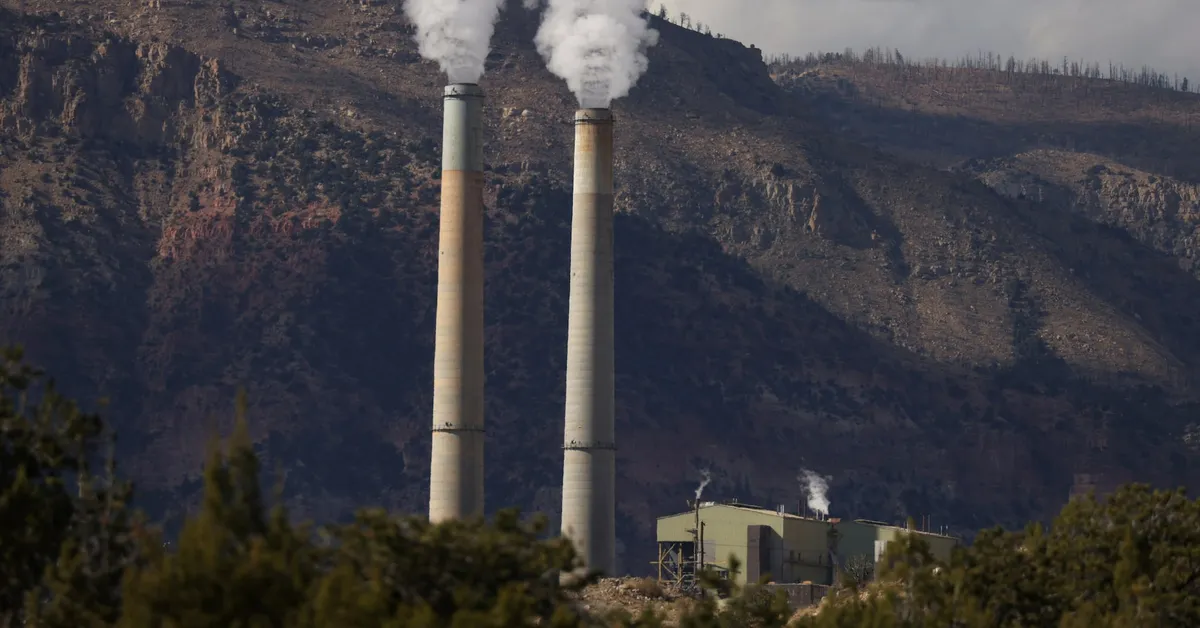
On March 12, the Trump administration unveiled a sweeping series of regulatory rollbacks, signaling a significant shift in environmental policy. Among the most notable changes is the repeal of Biden-era emissions limits on power plants and automobiles, alongside reduced protections for waterways. This move aligns with President Trump’s commitment to curtail regulations in order to stimulate industries ranging from coal to manufacturing, while also increasing the nation's oil and minerals production.
While these announcements are intended to bolster economic growth, they also threaten the core environmental protections established by previous administrations. These measures were originally designed to safeguard air and water quality and combat the impacts of fossil fuel-driven climate change. EPA Administrator Lee Zeldin described the day as "the most consequential day of deregulation in American history," in a video message shared on social media platform X.
The Environmental Protection Agency (EPA) rolled out over 30 deregulatory measures in a rapid succession of press releases. One of the first announcements involved a revision of the definition of waterways protected under the Clean Water Act. This change could lead to less stringent limits on runoff pollution from various sectors, including agriculture, mining, and petrochemicals.
In addition to changes related to waterways, the EPA indicated plans to review the Biden-era clean power plant rule, which aims to lower carbon emissions from power generation as part of a broader effort to mitigate global warming. Furthermore, the agency announced it would roll back greenhouse gas emissions standards for both heavy-duty and light-duty vehicles for model year 2027 and beyond. Notably, the power and transportation sectors account for approximately half of the nation’s greenhouse gas emissions, making them critical targets in the fight against climate change.
The Trump administration also signaled intentions to challenge a significant scientific finding from 2009 that deemed greenhouse gas emissions a danger to public health. This finding underpins many of the EPA's existing greenhouse gas regulations, following a Supreme Court ruling in the 2007 Massachusetts v. EPA case that classified greenhouse gases as pollutants under the Clean Air Act. The finding was solidified during former President Barack Obama’s administration and further reinforced by the 2022 Inflation Reduction Act, which categorized greenhouse gases as air pollutants.
Environmental advocacy groups have expressed strong opposition to these rollbacks, vowing to challenge them in court. Jason Rylander, legal director at the Center for Biological Diversity’s Climate Law Institute, stated, "This move won’t stand up in court. We’re going to fight it every step of the way."
In contrast, industry representatives, including the National Mining Association, praised the rollback of the clean power plant rule, declaring it "long overdue" given the increased demand for power driven by data centers and advancements in artificial intelligence. The American Exploration & Production Council (AXPC) also welcomed the deregulatory actions, urging modifications to several EPA-administered rules to enhance efficacy while building on the significant emissions reductions achieved by independent oil and gas producers.
Looking ahead, the Trump administration aims to reassess air and water regulations that have been in place for decades. This includes reconsidering mercury and air toxics rules updated under Biden, which the administration claims were intended to specifically target coal-fired power plants. Additionally, the EPA plans to shift coal ash regulation to state control, revisit standards for soot and air particulate matter, and reevaluate reporting requirements for methane emissions from oil and gas infrastructure.
The agency also announced it would explore the possibility of beneficially reusing wastewater from oil and gas production in the Permian Basin. However, this proposal has raised alarms among environmental groups due to the potential health risks associated with unknown chemicals in treated water, which could adversely affect both human health and the environment.
As these regulatory rollbacks take shape, the ongoing debate between economic growth and environmental protection remains at the forefront of American policy discussions.